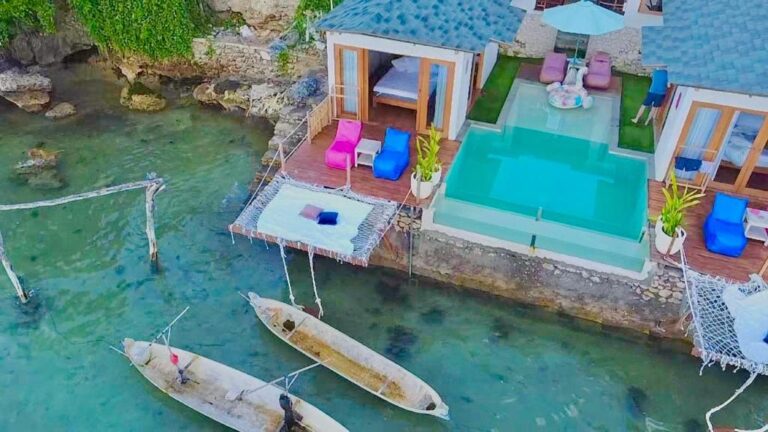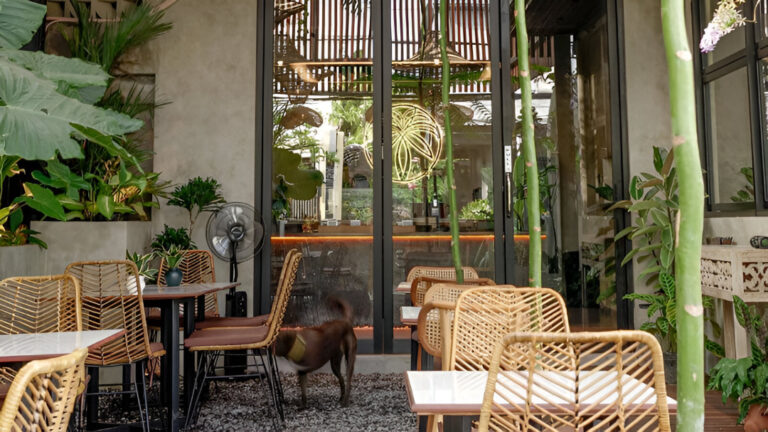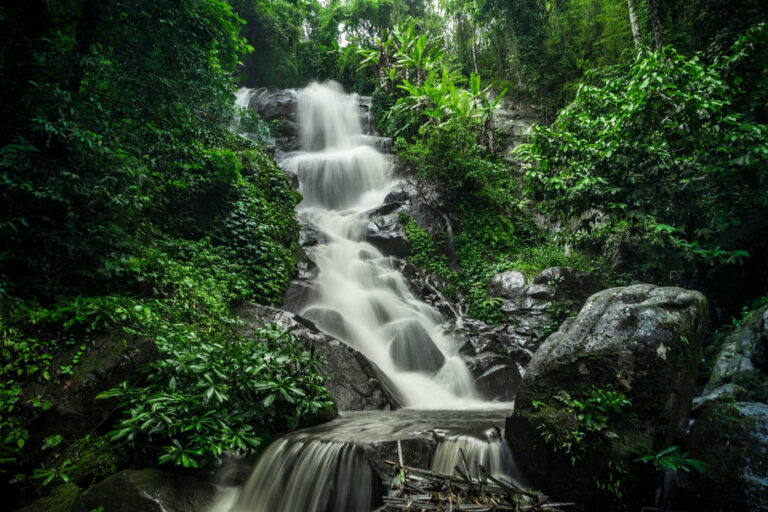We can’t stress this enough – don’t drink tap water in Bali. Drinking tap water is not safe and it could lead to worse things than Bali belly, particularly if you’re staying in Bali for a long time.
However, it’s also important to stay hydrated in the Bali heat and that means you can’t avoid drinking water entirely.
So, this is our guide to drinking water in Bali, the local water supply and how to stay healthy in this tropical climate.
Why Drinking Tap Water Is A Bad Idea In Bali
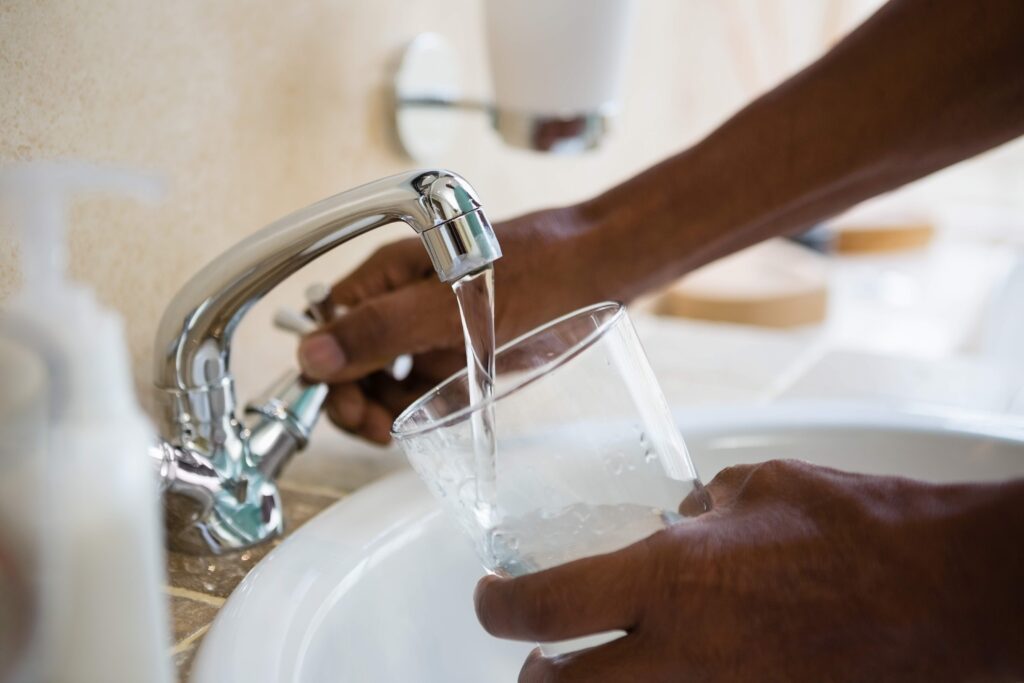
So, why do we avoid drinking tap water in Bali? There are two issues – the first is the water supply. Bali’s tap water is not put through the kind of purification process that the purified water that flows out of your tap at home is.
In fact, there’s a good chance that the water coming out of the tap is contaminated tap water and the last thing you want to do is drink contaminated water.
That’s because the water might contain amoeba, viruses and/or bacteria. It’s possible to contract some pretty nasty diseases from this kind of contaminated water.
Cholera, typhoid, amoebic dysentery, and even Hepatitis A can be found in tap water in Bali sometimes particularly when there’s been heavy rain or flooding taking place.
The tiny plastic pipe that brings the supply to your home constantly leaks water and, in turn, it’s possible for soil contaminants to enter the supply. (Leaking pipes isn’t just a Bali problem, mind you, the UK is losing billions of gallons of water to the ground each year because of this issue).
We know that sulphur contamination is a real possibility, for example, which won’t hurt you but it will make the water taste and smell bad.
On top of that, it’s also possible if the pipes in a building are old, for your water to become contaminated with heavy metals. This is less likely in Bali than in some other parts of the world as most buildings here are new-ish, but heavy metal poisoning is no joke and you don’t want to take any risks.
It’s important to note that on this beautiful island destination, even the locals take necessary precautions around the water and don’t drink tap water.
Can You Brush Your Teeth With Tap Water In Bali?
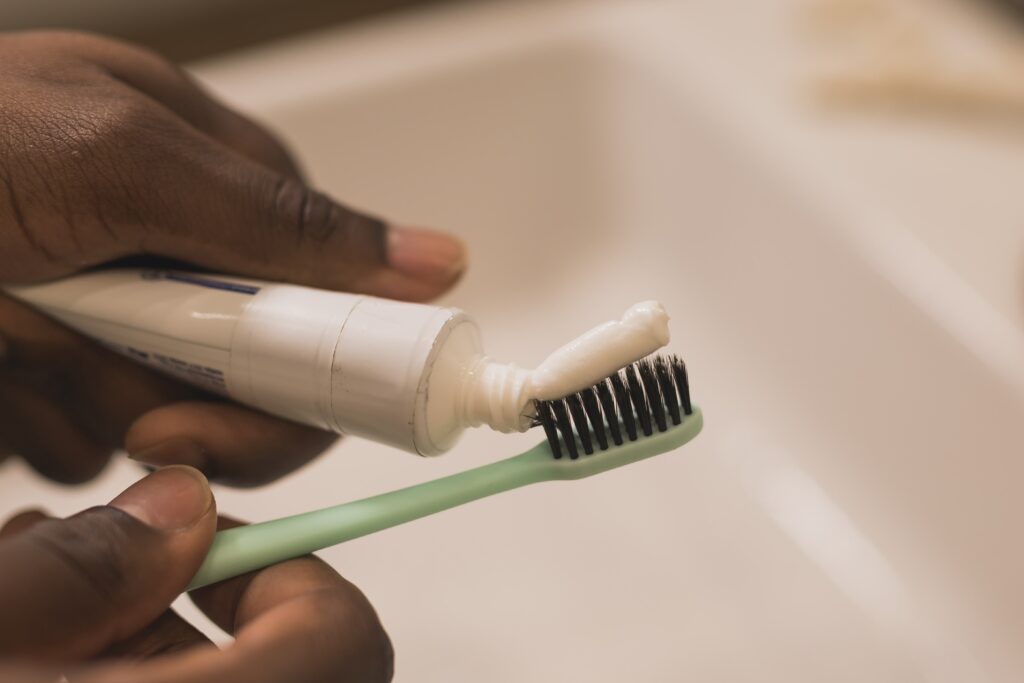
You’ll see a lot of debate on this issue between expats who swear that you can and tourists who swear their bout of Bali Belly must have come from brushing their teeth.
We wouldn’t use Bali water from a tap for brushing your teeth unless it’s been boiled and even then, we’d spit the water out rather than swallow any.
You’re not likely to get sick from tap water if you’re not swallowing it, but it’s simply better to be safe than sorry, particularly if you’re on holiday and only have a few days in Bali.
Should We Use Hand Sanitizer Rather Than Water To Wash Our Hands?
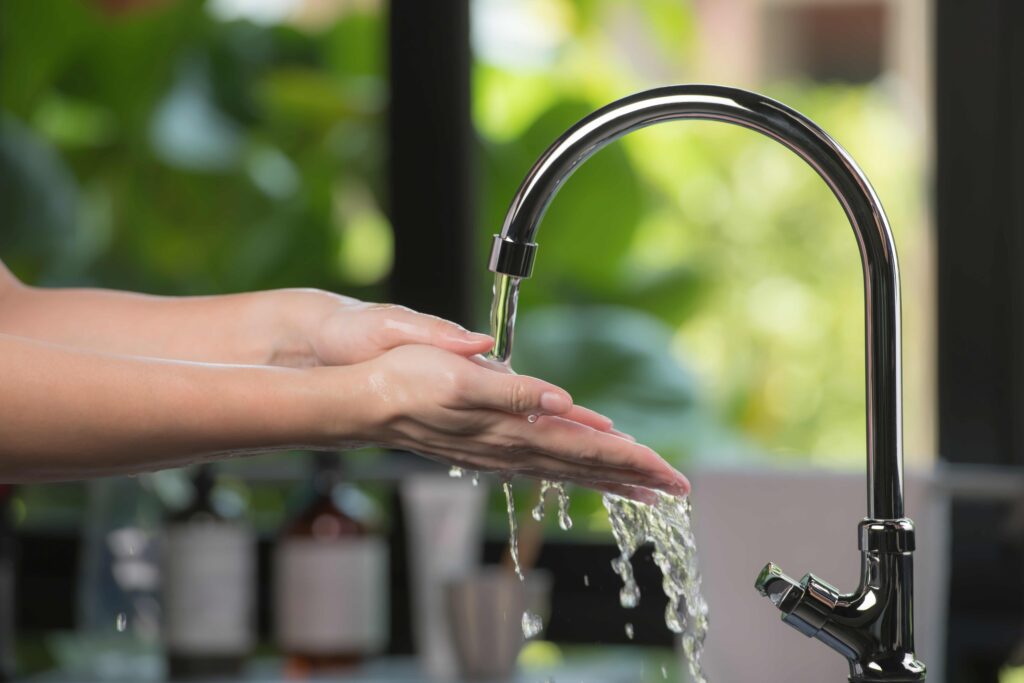
No. In fact, there’s some evidence that hand sanitizer may lead to getting sick by creating bacteria that are resistant to this practice.
You’re fine to shower in the water here and to wash your hands with it, just make sure to dry your hands properly afterwards.
For small children, you might use wet wipes to be certain that their fingers are completely free of contamination as their stomachs tend to be more sensitive than adult stomachs.
Is Bali Belly Caused By Drinking Tap Water?
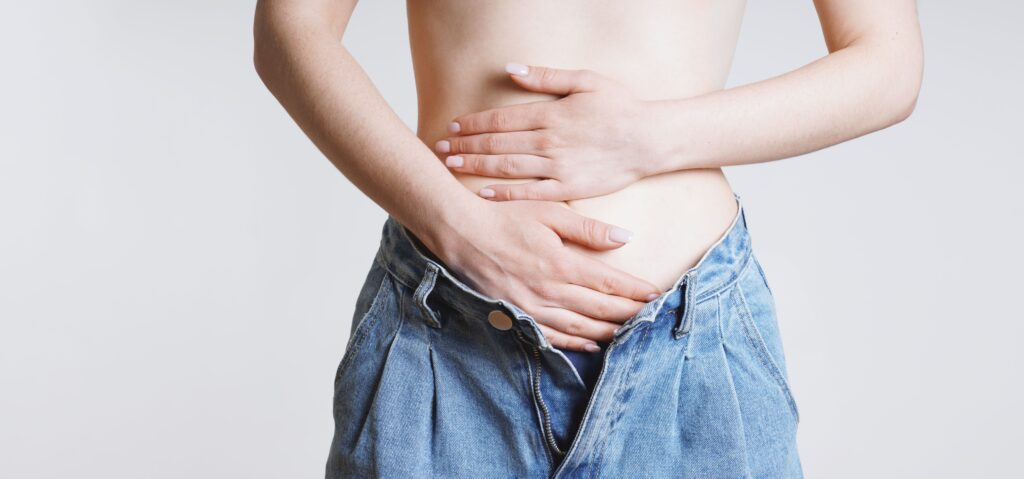
Yes, it’s likely that sometimes, Bali Belly is caused by drinking tap water that is contaminated or by eating contaminated food that has been washed in Bali’s tap water or even by accidentally drinking water from swimming pools that haven’t been properly chlorinated.
However, we need to stress that “Bali Belly” is a catch-all phrase for traveller’s diarrhea and food poisoning and there is no way to be certain where your case of Bali Belly came from. (We’ve got a guide to Bali Belly and the best ways to prevent it on the site).
Just How Likely Is It That You Will Get Sick If You Drink Bali Tap Water?
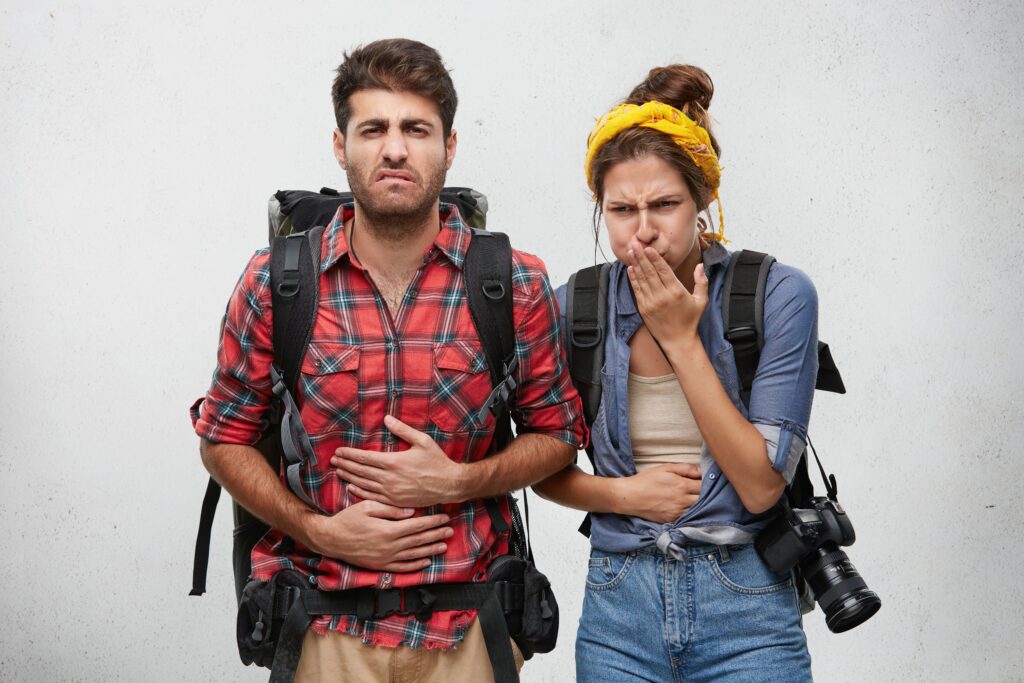
We can’t tell you and neither can anyone else. The only way to test this would be to get a bunch of people, make them drink tap water and see how long it took for them to get sick drinking Bali water, that would be very unethical.
However, there is a much greater chance of getting sick from drinking tap water in Bali than there is from drinking tap water in your own country and given that the diseases you can get from this are potentially very severe, the potential risks outweigh the rewards in all cases.
This is particularly true because you can get free drinking water almost anywhere in Bali as long as you have a reusable water bottle. (More on this later).
Is Boiling Water The Right Way To Drink Bali Water?
Maybe. Several medical authorities say that by boiling water for a period of 1 minute or longer, you should kill all viral, bacterial and amoebal contamination.
If you’re only staying in Bali for a few weeks, that’s good enough. However, boiling will do absolutely nothing if your tap water is contaminated by heavy metals.
Heavy metal poisoning usually takes months or years of consuming the contaminated tap water. So, this can be a genuine concern for long-term expats, digital nomads, retirees, etc. who are staying for a much longer period of time.
We’d urge people who intend to stay in Bali or Indonesia as a whole for long periods to not rely on boiled water and instead go with filtered water.
Is Filtered Water The Answer?
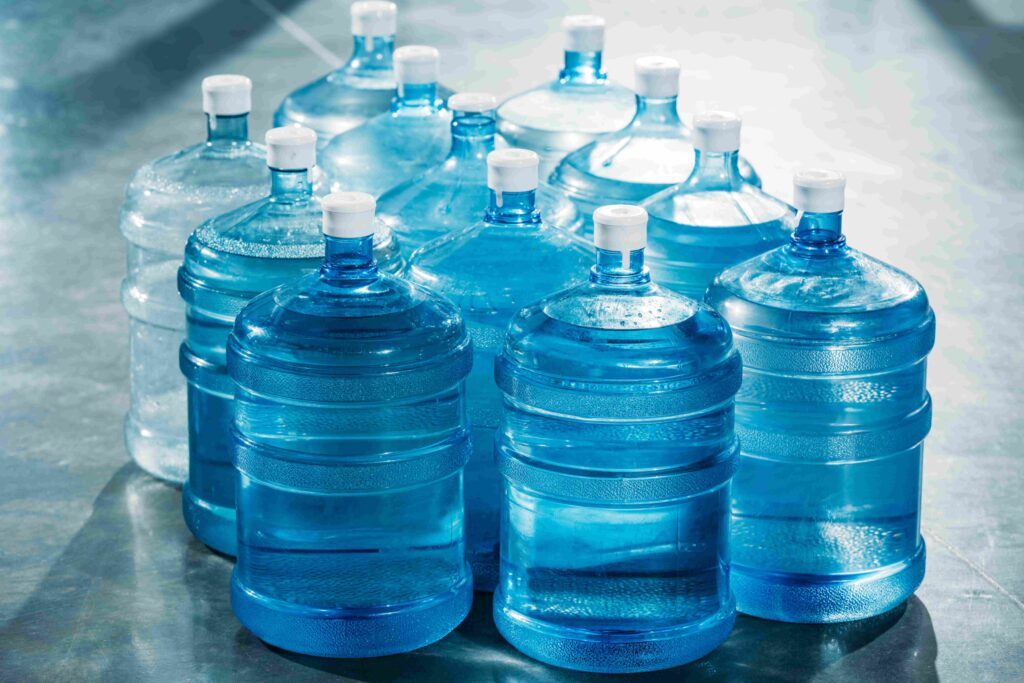
Mainly, filtered water is just fine to drink but there are five common types of filters that you should be aware of and each of them has a different level of effectiveness:
Portable Water Filters – these are small, lightweight filters that you can carry around anywhere and get clean drinking water wherever you need it.
UV Water Purifiers – these are pen-like devices that use UV light to kill anything nasty in the water.
Water Bottle Filters – these are super convenient and their water filters work whenever you fill the bottle. They use a mix of filtration methods to keep the water free of life forms and other contaminants.
Under Sink Filters – these are filters designed to remove impurities and other contaminants from a single household sink’s water. Their efficacy is usually related to their price tag and if you want the best filters, they are not cheap. These filters are typically used by expats, not tourists.
Household Supply Filters – these are expensive systems that ensure water delivered from the tap anywhere in a household is safe to drink. Typically, these are only used by expats.
Tourists will typically need to rely on the first three types of filters if they want to drink plenty of water that’s been filtered from their own supply.
It’s the last two types of filter that can be configured to remove heavy metals from the supply, the first three aren’t designed for this.
What About Ice Cubes In Bars And Restaurants?
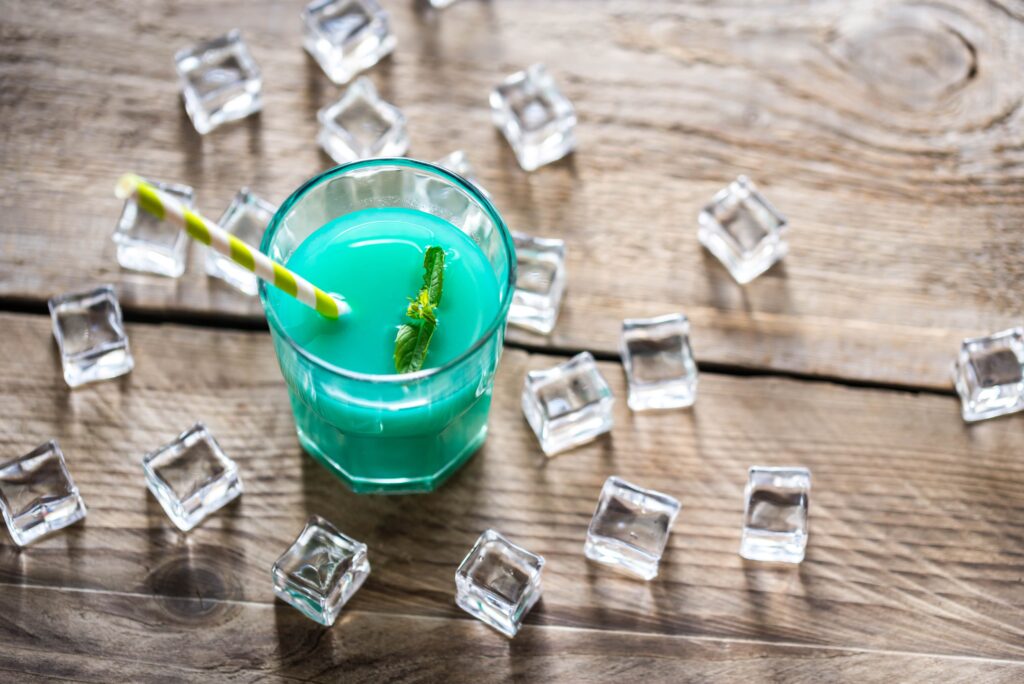
The Bali government has a law that requires establishments to buy their ice cubes from suppliers using water that is safe to drink.
This is great news and it means you’re unlikely to develop Bali Belly or anything worse by having ice in your drinks.
Most expats will have local ice in their drinks every single day of their time in Bali and locals won’t blink at ice cubes in their drinks either. So, you don’t have to avoid ice at all unless you think somebody’s been making it with tap water.
Is Bottled Water Safe To Drink In Bali?
Yes, bottled water is safe to drink. Bottled water in Bali, particularly the cheap brands, may just be filtered tap water anyway.
The more expensive brands of bottled water (as with bottled water anywhere in the world) are drawn from springs and groundwater supplies (the volcanic rock here acts as a wonderful natural filter) around the island and are considered completely healthy to drink.
The drawback of consuming water like this is not the water, it’s the plastic bottles that the water comes in.
Plastic is the biggest pollution problem facing Bali and Indonesia at this moment. A single discarded water bottle is no big deal, the tens of millions of bottles in the oceans here, on the other hand, are a major deal.
The beautiful beaches of Bali, particularly in the rainy season, can be covered in plastic waste that washes up on the shores and although local people, businesses and the government work extremely hard to restore the beaches of this popular holiday destination to their pristine state each day but that’s not a long-term solution.
There is a huge effort to cut down on the use of single-use plastics like water bottles in Indonesia and you can do your part by opting to stay hydrated without generating large amounts of plastic waste as you do.
If you must buy bottled water, try to buy large bottles that can be recycled when you finish them without being dumped in a landfill.
What About Other Bottled Drinks?
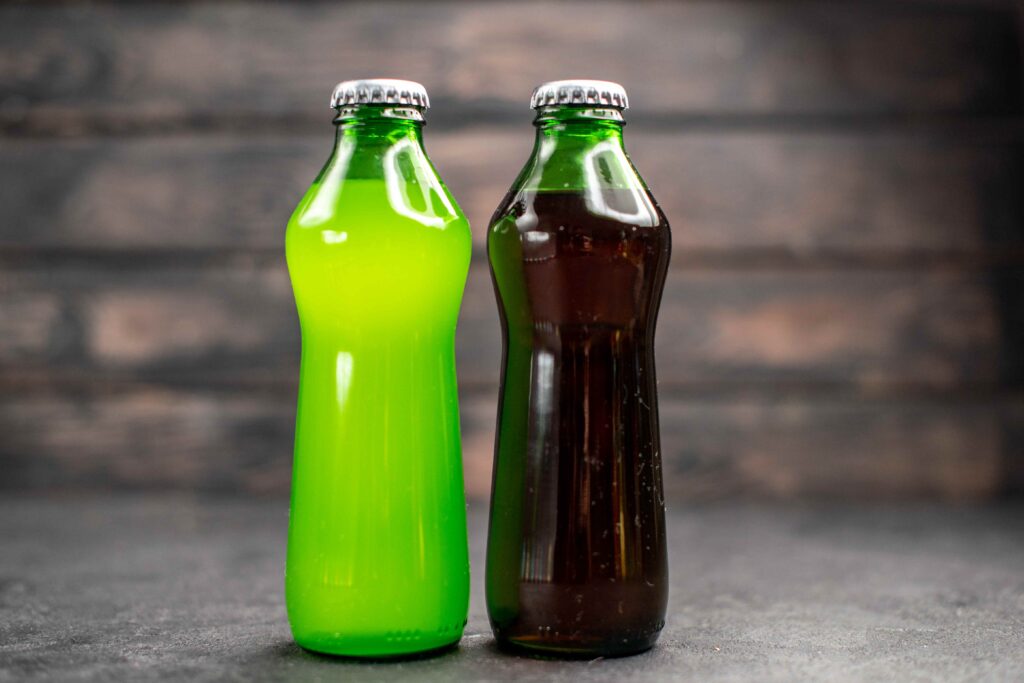
Staying hydrated with Coca-Cola, Sprite, and all other drinks in bottles (and/or cans and/or packets) in Bali is just fine.
All of the companies involved know that clean water is an essential part of keeping your customers alive long enough to become repeat customers.
This is, of course, backed by action from the Balinese authorities to inspect any local production facilities and ensure they are adhering to health and hygiene standards.
Bali remains a popular destination, in part, because most people don’t end up feeling unwell from drinking or eating here.
What About Coconut Water?
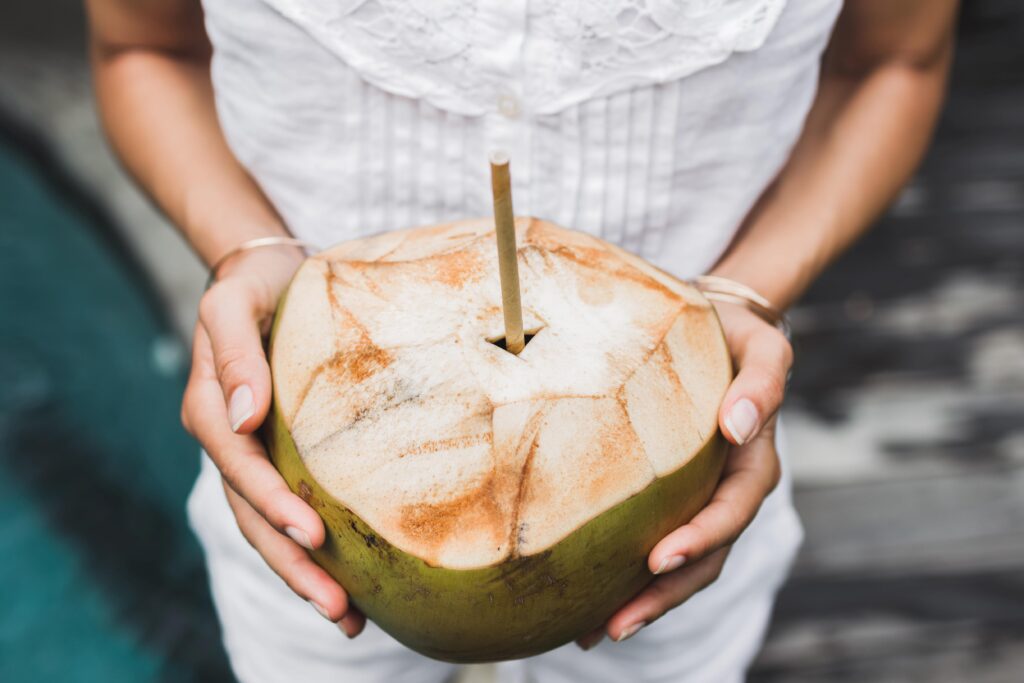
Coconut water has nothing to do with the water supply and is completely safe to drink. In fact, there’s some evidence that because of the amount of electrolytes present in coconut water, you might be better off drinking some every single day!
This is simply because, in the heat of the Balinese day, it’s easy to sweat out electrolytes. A lack of electrolytes can cause muscle cramps…
If you don’t like coconuts, you can buy electrolyte powder in most pharmacies, or buy premade drinks such as Pocari Sweat and Gatorade in most local convenience stores.
You can also find plenty of sodium in table salt, and potassium in bananas, both of which are easy to get ahold of in Bali.
It’s Better To Use A Reusable Water Bottle In Bali!
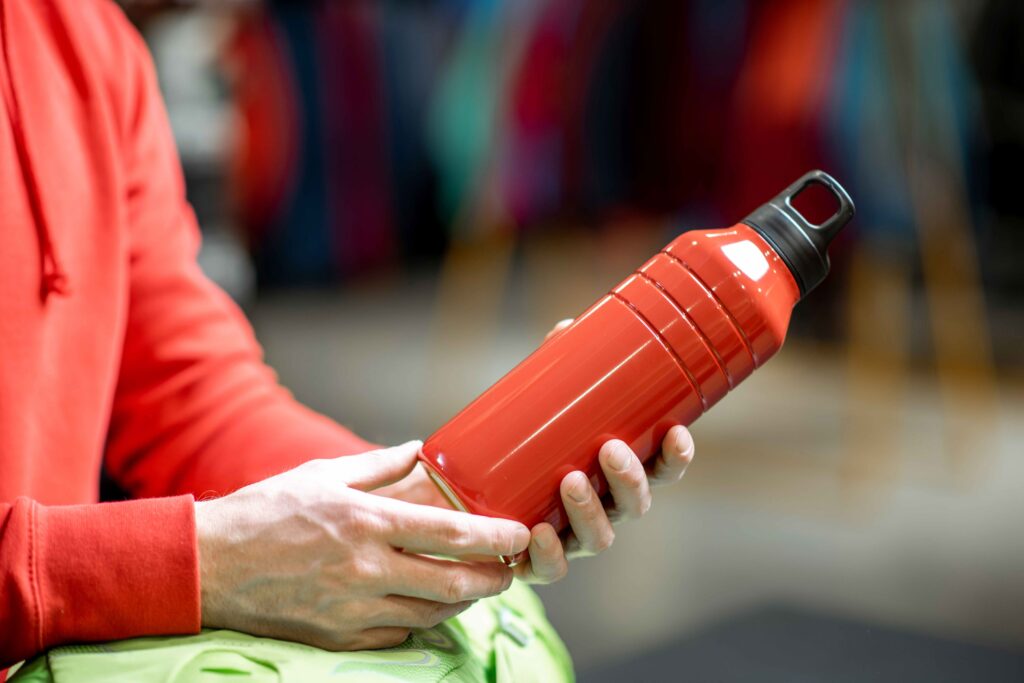
We mentioned the use of a reusable water bottle earlier and we’d strongly recommend that you buy one of these bottles and carry it everywhere in Bali.
Nearly all hotels and other public-facing businesses will have large bottles of water (filtered) that you can use for free as long as you have a bottle to put it in.
This is the best way to consume water on your trip, it’s cost-effective and environmentally kind and ensures you can keep hydrated in a safe and effective manner too.
Watch Out For Contaminated Water In Other Forms
We need to point out that it’s not just the water you need to watch out for here, it’s also things that the water might have come into contact with.
Contaminated food is a potential problem. To avoid it, we recommend not eating salad (except at trustworthy restaurants) or fruit that has been washed in water.
Fruit and vegetables, contrary to popular belief, cause more food poisoning each year than undercooked meat or fish and this is almost always because of external contamination.
FAQs
Can You Drink The Water In Bali Resorts?
Yes and no. The resorts can’t keep harmful bacteria, viruses, etc. out of the tap water and if you want to avoid stomach cramps and stay hydrated, you need to drink fresh water that has been through water filters or bottled water.
Is Bali Tap Water Safe To Drink After Boiling?
In the short term, yes, and if you’re just here on holiday boiled water is fine for staying hydrated. However, if you’re here for the long haul, we’d recommend investing in a filtration system that eliminates heavy metal contamination.
Can You Have Ice In Your Drinks In Bali?
Yes! You can have ice in your drinks. The law in Bali requires food and drink businesses to buy their ice cubes from sources that use fully purified sources of water.
Do Bali People Drink Tap Water?
No. Balinese people don’t drink the tap water in Bali. It’s no safer for locals than it is for tourists.
Is Bali Restaurant Water Safe To Drink?
Yes. In almost all restaurants in Bali, they will have a filtration system that provides water that is safe to drink or they will offer you bottled water, instead.
Will It Ever Be Possible To Drink Bali Water Out Of The Tap?
Maybe. We don’t have a crystal ball to see the future but as a developing nation, Indonesia has a lot of infrastructure challenges to overcome.
It’s possible that one day water in Bali will flow out of the tap entirely safe to drink, but for now, it’s not.
Final Thoughts On The Safety Of Drinking Tap Water In Bali
So, “is Bali water safe to drink?”. The answer is “no” if it’s tap water, but filtered or boiled water is fine for most visitors to the island.
Of course, the best way to be certain that what you’re drinking is safe is to drink alcohol as alcohol kills viruses, bacteria and amoeba.
So, why not come and have a cocktail or two at FINNS, the world’s best beach club? It’s for your own good 😉









